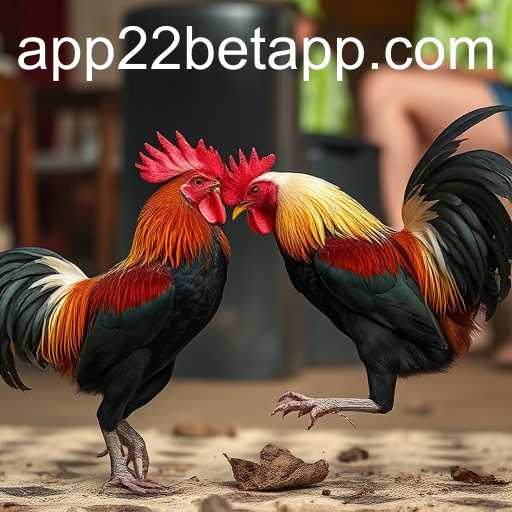The Complex World of Cockfighting and Its Intersection with Online Gambling
Cockfighting is a centuries-old blood sport that has captivated audiences across the globe. With deep roots in various cultures, this controversial activity pits two gamecocks against each other in a brutal fight, often to the death. The practice has garnered a myriad of opinions and discussions regarding its ethical, legal, and cultural dimensions. In recent years, the integration of technology has further complicated these discussions, as betting on cockfights has found a new platform through mobile applications like the 22bet app. This article delves into the intricate world of cockfighting and examines its modern intersection with online gambling.
A Historical Perspective on Cockfighting
Cockfighting has a rich history that spans continents and centuries. Historical records suggest the sport originated in Southeast Asia but quickly spread to other parts of the world, including Europe, Latin America, and the United States. In many cultures, cockfighting is not just a sport, but a tradition deeply ingrained in the local lifestyle. For example, in the Philippines, it is known as 'sabong,' and is considered both a pastime and a significant cultural event.
While the practice is ancient, its controversial nature is timeless. Critics argue that it is inhumane and ethically unacceptable due to the harm it causes to animals. On the other hand, supporters often view it as a traditional game worthy of preservation, emphasizing its cultural significance and historical legacy.
The Legal Landscape
The legal status of cockfighting varies significantly across the world. In many regions, including most of the United States and Europe, cockfighting is illegal due to animal cruelty laws. The penalties for engaging in or facilitating cockfights can be severe, including hefty fines and jail time.BMW55 ph
Conversely, some countries and regions where cockfighting is legal have established regulatory frameworks to govern the sport. These regulations typically stipulate how fights are conducted, the treatment of the animals, as well as betting laws. However, the enforcement of these regulations is often inconsistent, leading to a patchwork of legal standards.
Betting and the Role of the 22bet App
Betting has always been a significant component of cockfighting, often intensifying the excitement and stakes of the sport. Traditionally, bets were placed on-site, with participants and spectators wagering directly on their favored gamecocks. However, the digital age has transformed this aspect of the sport, introducing online betting platforms into the mix.PH 35 games
The 22bet app is one such platform that caters to a wide range of sports betting, including cockfighting in jurisdictions where it is legal. The app's user-friendly interface and global accessibility make it an attractive option for gamblers seeking to bet on cockfights from the convenience of their devices. This development has sparked debates on the regulation and ethical implications of remote betting on animal fights.
Ethical Considerations
The ethical issues surrounding cockfighting are complex and multifaceted. Animal rights activists prominently argue against the sport, emphasizing the suffering imposed on the birds. They advocate for stronger laws to protect animals from such practices and promote awareness about animal cruelty.Phtaya 50
In contrast, some cultural observers assert that cockfighting is a traditional practice that represents an important cultural expression. They argue that it is possible to maintain the cultural heritage of the sport while enforcing humane treatment standards for the animals involved.
The introduction of online platforms like the 22bet app adds another layer to these ethical considerations. By providing a venue for betting, these apps may inadvertently contribute to the perpetuation of cockfighting, raising questions about corporate responsibility and the role of technology in traditional practices.
Cultural Significance
For many communities, especially in regions where cockfighting is legally sanctioned, the sport holds cultural significance. Cockfighting events are often community gatherings, complete with festivities that celebrate local traditions. In these contexts, the sport is more than just a competition; it is a way of life that encompasses social, entertainment, and economic activities.Jlvvv11 login
The challenge lies in balancing this cultural importance with ethical and legal considerations. Proponents of cockfighting argue that attempts to ban the sport overlook its cultural value and the livelihoods it supports. They advocate for regulated cockfighting that can uphold traditions while ensuring animal welfare and legal compliance.
The Future of Cockfighting
The future of cockfighting is uncertain, particularly as global perspectives on animal rights continue to evolve. Technological advancements like the 22bet app indicate that while traditional forms may diminish, the allure of betting and competition will persist.
Efforts to reconcile the cultural, ethical, and legal aspects of cockfighting may require innovative solutions. Cultural preservation groups and animal rights organizations could engage in dialogue to create frameworks that honor traditions while promoting humane standards. Meanwhile, policymakers will need to consider how technology affects traditional practices and the new challenges it presents.
Conclusion
The world of cockfighting is a complex mosaic of historical traditions, cultural significance, and modern controversies. While the practice faces growing opposition due to ethical concerns, its enduring appeal in certain regions cannot be ignored. The emergence of betting platforms like the 22bet app reflects the sport's adaptation to modern times and the ongoing complexity of balancing tradition with contemporary values.
TA777 APK







